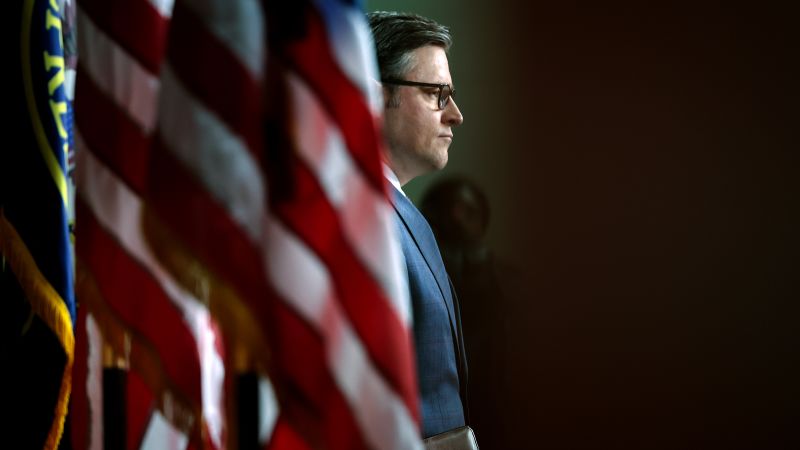Speaker Mike Johnson is facing a critical decision that could determine his political future: whether to prioritize US national interests or side with the far-right faction of the Republican Party. He is pushing for billions of dollars in aid to Ukraine, Israel, and Taiwan to protect US allies from Russian, Iranian, and Chinese threats. However, GOP extremists within his party are accusing him of betraying the base, putting his leadership position at risk.
The schism in the GOP reflects how former President Trump’s “America First” ideology has eroded the party’s internationalist principles. Johnson is facing opposition from hardliners in his own party who are demanding that the Ukraine aid be contingent on tough new border security measures. This puts him in a vulnerable position as he struggles to navigate between traditional national security arguments and the demands of the party’s more extreme members.
The challenges Johnson faces are not unique, as previous Republican speakers have also struggled to lead a divided party. The rise of right-wing extremists in the party has made compromise increasingly difficult, leading to accusations of betrayal from their own members. Johnson, who is perceived as one of the most conservative speakers in history, is trying to explain the constraints of his position and the need for compromise in a divided government.
Johnson’s attempts to pass foreign aid bills are met with resistance within the GOP, highlighting the party’s polarization and the challenges of governing. Despite his efforts to secure support for aid to US allies, Johnson is facing opposition from members who prefer to oppose rather than work toward solutions. The speaker’s vulnerability is further exacerbated by his reliance on Democratic votes to pass critical legislation, which could undermine his leadership in the eyes of his own party.
Johnson’s shift towards advocating for foreign aid marks a departure from his previous positions as a backbencher and reflects a more traditional GOP foreign policy perspective. He emphasizes the importance of standing by allies like Israel and defending freedom against threats from hostile regimes like Russia and China. The urgency of the situation, prompted by Iran’s recent attack on Israel and ongoing Russian aggression in Ukraine, underscores the need for immediate action to support US allies.
As Johnson faces mounting pressure to pass crucial foreign aid bills, he must navigate the competing demands of his party while upholding his responsibilities as speaker. The possibility of losing his leadership position in a politically divided environment raises the stakes for Johnson as he tries to secure support for aid to Ukraine and Israel. Despite the challenges he faces, Johnson remains committed to doing what he believes is right and fulfilling the responsibilities of his office in the face of intense political pressure.













